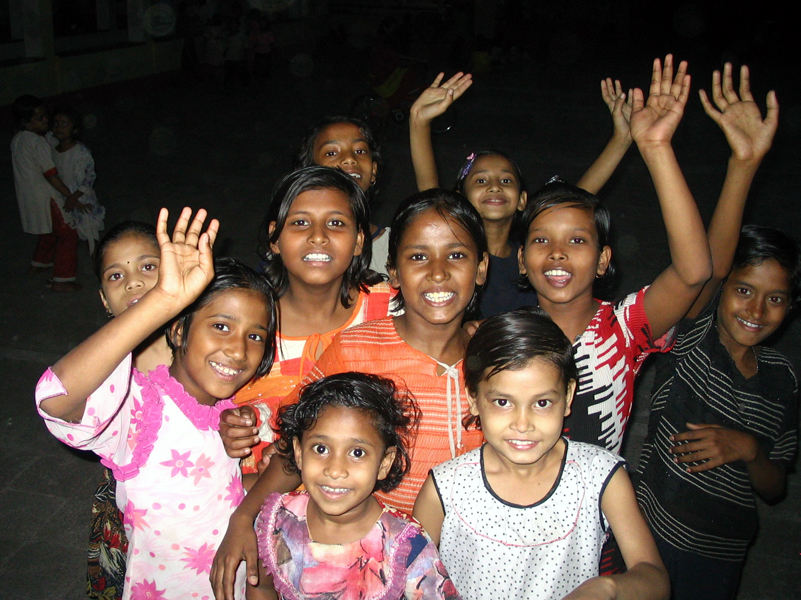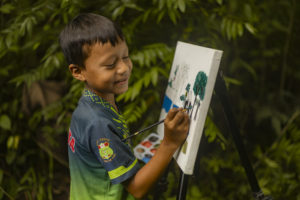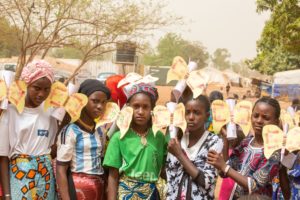De nombreux enfants du Bengale Occidental sont soumis à des pratiques d’exploitation à des fins de prostitution, d’esclavage ou de vente d’organes. Un travail de prévention.
To stop the enslavement of children, Terre des Hommes Switzerland partners work in villages where traffickers get their victims. The project involves raising awareness amongst young people and improving local living conditions.
West Bengal is one of the most populous and poorest states in India. The district of Uttar Dinajpur is mostly rural. Infrastructure shortage, unequal land distribution, not so productive farming practices and non-existent economic prospects are pushing villagers to migrate. However, the secret nature of migration benefits traffickers, who take advantage of children’s vulnerabilities to kidnap and exploit them in prostitution, slavery or organ trade. Smokus, a Terre des Hommes Switzerland partner, tackles this issue by working at the very origin of the problem, the place where traffickers grab their victims.
Action of Terre des Hommes Switzerland
This project is based on a study by Shripur Mahila-O-Khadi Unnayan Samity (Smokus) in 2010 which revealed the need to provide concrete solutions for the issue of child trafficking.
The implementation strategy consists of four components. First, a community surveillance system, a real security net against traffickers, must be developed. The creation of such committees showed effectiveness in another region of India where Terre des Hommes Switzerland supported a program fighting child trafficking. To prevent migration, Smokus also embarks on the mission of finding ways to generate additional income. With improved food security, the risk of children migrating declines.
The second component deals with the improvement of childcare. Inadequate public infrastructure in the remote countryside of Uttar Dinajpur makes it hard to ensure education for children, which tends to make them more naïve and unaware of the dangers faced when migrating. Smokus has therefore decided to set up educational centres for children aged 8 to 14 in four neighbourhoods.
In the third component, the project helps improve knowledge about how the local government works. Indeed, it is crucial to know the institutions and governmental programmes to fight for rights!
Lastly, the project strengthens local lobby groups and networks so that the fight against child trafficking can be put on the agenda of local authorities.
Once well-informed, village groups can lobby local and regional governments for the effective implementation of governmental assistance programs to improve living conditions. Meetings between NGOs and NGO networks are organised, during which an action plan on the prevention of child trafficking and risky migration is prepared, with measures to assist and rehabilitate victims, and create pressuring methods to stop child trafficking cases.
More children are protected everyday against trafficking for labour exploitation, prostitution or organ trade.





